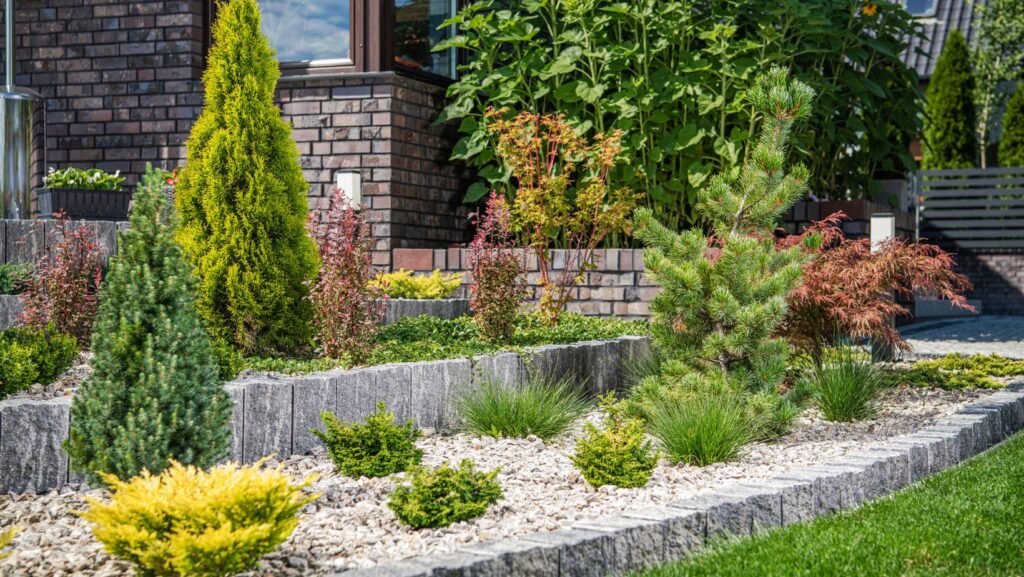It is such an enriching activity, but then again, unfortunately, it comes with not-so-enriching times: those times when you have to fight pests that just want to take away the health and beauty of your plants. While chemical pesticides at times may seem like an easy way out, their use threatens to be injurious to good bugs, the pollinators, and the wider ecosystem in general. Fortunately, there are plenty of natural ways to control pests that can help to keep the populations in check without harming the vegetation of your garden. Here is an overview of some of the most efficient methods for natural garden pest control.
Contents
Table of Contents
ToggleAttract Beneficial Insects
One of the most effective ways to do organic pest control is to encourage beneficial insects that prey on injurious ones. They are ladybugs, lacewings, and predatory wasps: wonderful companions in the garden. Plant a number of flowers that offer nectar and pollen, like marigold, dill, or fennel, to attract them in the garden. While one is doing all this, he or she should not forget to avoid all chemical pesticides that would keep these friendly insects away from the garden.
Companion Planting
It involves planting some plants together to have a helpful relationship with one another. Planting flowers like marigolds with vegetables will repel nematodes and aphids. Similarly, basil planted near tomatoes can help in repelling tomato hornworms. This technique is not only targeted at controlling pests but also promotes healthier growth and higher yields.
Natural Insecticides
If the populations of pests cannot be contained, take the assistance of natural insecticides obtained from plants. Neem oil is prepared from the seeds of the neem tree, hence causing interference with the disruption of the life cycle of a number of insects. This is the very reason that neem oil is quite favorable among organic gardeners. Pyrethrin, which is extracted from chrysanthemum flowers, also works for a long range of pests in your garden. Always carefully follow the instructions and apply in the evening or early morning so that the beneficial insects would least be harmed.
Physical Barriers
Physical barriers are one of the ways in which you can control the pests from affecting your plant. You can cover them with row covers, nets, or even floating row covers that may prevent the insects from reaching your crops. You may also handpick larger pests such as caterpillars and beetles off your plants. Make it a routine to check on your plants for the first sight of pests. Remove them immediately.
Diatomaceous Earth
Diatomaceous earth is obtained from tiny aquatic organisms called diatoms that have died and turned to fossils. While an inert powder, when sprinkled around plants, it tends to deter soft-bodied insects such as slugs, beetles, and aphids through piercing the insect’s exoskeleton, causing dehydration.

It is harmless to humans and pets and beneficial insects and for that reason is a good alternative for organic pest control.
Homemade Sprays
Homemade pest control sprays are another efficient and economic option for insect management. A simple soapy water solution can smother soft-bodied insects such as aphids and spider mites. A mixture of one to two tablespoons of mild liquid soap to a quart of water is applied directly to the affected plants. Any spray should be tested on a small area first for phytotoxicity.
Maintaining Plant Health
Healthy plants are less susceptible to pest problems. Good gardening practices such as proper watering, adequate sunlight, and good spacing favor healthy growth. Monitor your plants regularly for early signs of stress or disease and take action before a problem attracts pests.
Compact tractors can give immense support for maintaining your garden and controlling pest control measures. These handy machines can assist you with everything from tilling soil – which upsets the life cycles of pests in the ground – to clearing off debris and weeds that can serve as a haven for unwanted bugs. By caring for your garden space using a compact tractor, your plants will be healthier and less prone to insect infestation.
Rotate Crops
Crop rotation is one of the standard practices in changing the venue of some of your crops each season in the garden. The practice will break the life cycles of pests that might have built up in the soil, as well as those of diseases. For example, if you had tomatoes in a given area in one year, plant legumes or other crops in the same area the succeeding year to prevent pest populations from getting established.
Conclusion
Natural pest control is more efficient, if not better, than chemical pesticides in ensuring the well-being of your garden without hurting the general ecosystem.

You will be able to keep pests under control in an eco-friendly manner and have a very good garden by encouraging the helpful insects, planting companions, and making homemade remedies. These methods will not only protect your plants but also make sure that the ecosystem is well-balanced with high biodiversity levels. You just have to practice a little patience and persistence to have a garden with all the greenery sans the chemicals.

